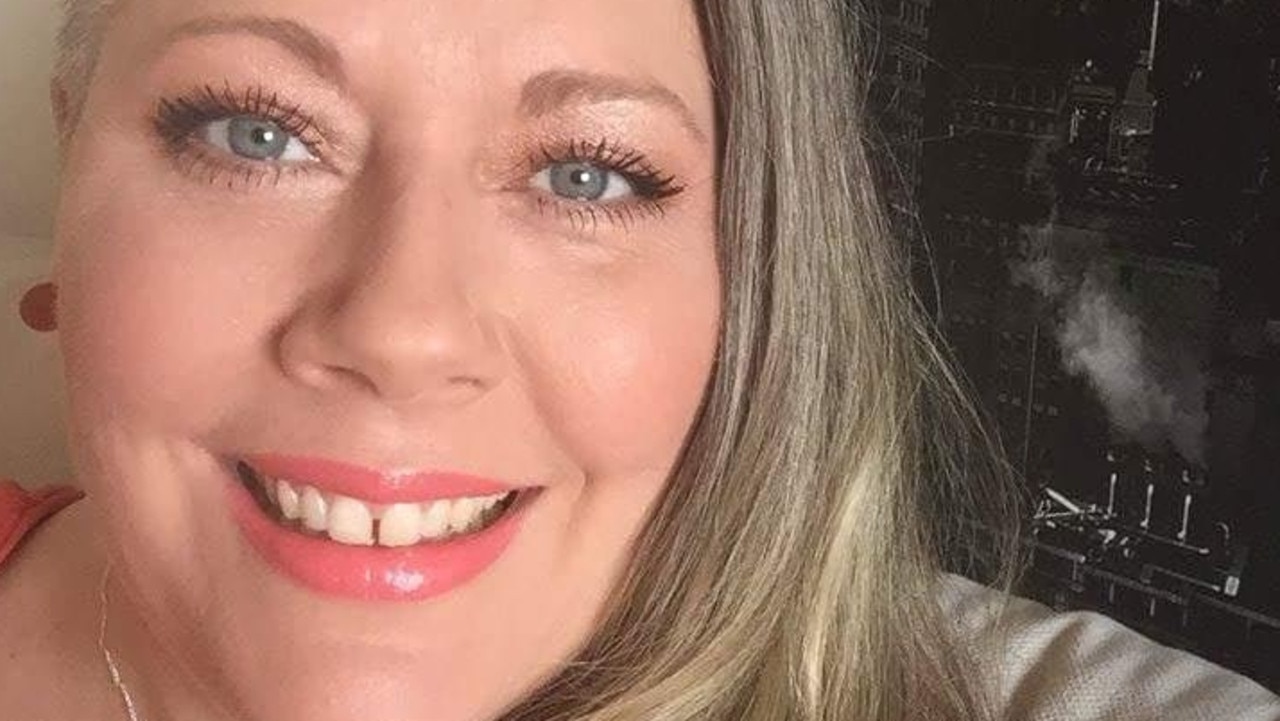Plan to stop medical bills bankrupting Australian cancer patients
Treatment breakthroughs have made cancer a chronic illness for many patients but treatment can be financially crippling. A new plan could ease that pain.
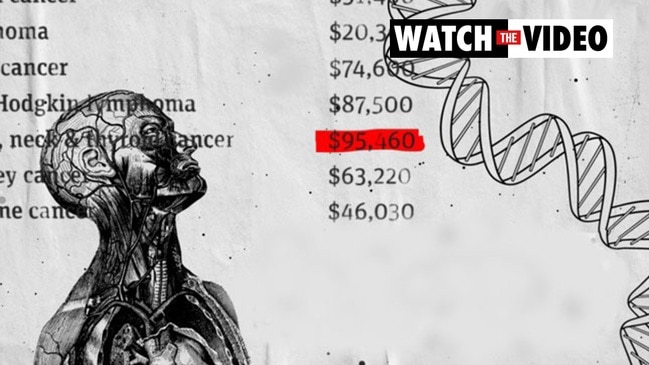
National
Don't miss out on the headlines from National. Followed categories will be added to My News.
Hundreds of thousands of cancer patients financially crippled by medical gap payments of up to $22,000 would be saved by a plan for a “cancer care no gaps” scheme.
Under the $76 million-a-year plan, the Medicare Safety Net would immediately kick in the day a person was diagnosed with cancer and cover 80 per cent of any out-of-hospital medical gap expenses.
Cancer patients would also qualify instantly for a prescription medicine safety net covering most of their gap fees for medicines.
Out-of-pocket expenses for in-hospital costs, such as surgery, would not be covered by the scheme.
Currently, general patients need to spend $2249.80 ($717.90 for concession card holders and families receiving Family Tax Benefit A) out of their own pockets before the Medicare Safety Net kicks in, reducing their bills.
They also need to spend $1542.10 ($326.40 for pensioners and concession card holders) out of their own pocket on medicines before the PBS safety net reduces their costs.
The Private Cancer Physicians of Australia (PCPA) and Rare Cancers Australia are pushing for the change in next week’s federal budget and, if it is not delivered, they want it to be a federal election issue.
High out-of-pocket medical expenses for cancer scans, medications and medical appointments meant some patients were unable to afford lifesaving treatment, they said.
“We don’t want our patients to think about the about the costs of the treatment, we want them to concentrate on getting better,” PCPA president Associate Professor Christopher Steer said.
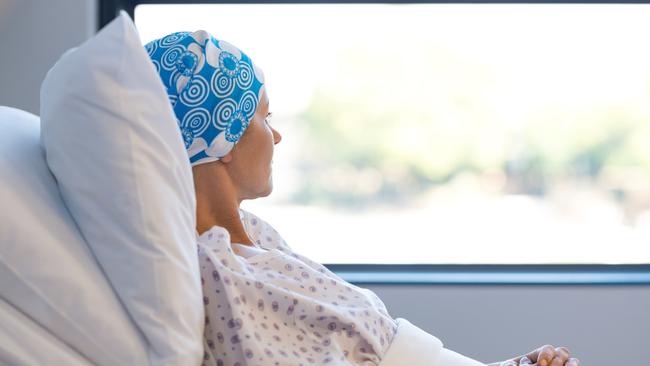
Other changes being sought by the groups include funding so every cancer patient can to have a facilitator appointed to help them navigate the health system during their treatment, similar to the McGrath breast cancer nurses.
A technology-driven “financial concierge” system needs to be created to ensure all bills for every medical provider can be seen and centred in one place to reduce the “bill shock”, they say.
They want Medicare to permanently allow patients access to subsidised specialist phone consults and federal government support for a pilot program to fund people living with cancer in rural and regional Australia, so they can access clinical trials for cancer treatments in big cities.
Right now there are more than a million Australians living with (or have lived with) cancer, with more than 151,000 newly diagnosed every year.
Numerous studies by cancer support groups have found cancer patients face devastating out-of-pocket expenses of up to $22,000 in addition to losing income if they are unable to work during their treatment.
More than 77,000 patients drew down in excess of $1.2 billion in superannuation in the last three years to fund medical costs not covered by their insurer or Medicare.
When the Medicare Safety Net was originally introduced, some greedy doctors tripled their fees to take advantage of the system.
To prevent cancer doctors taking advantage of the scheme, the groups want an annual audit to ensure service provider fees are not unduly increased over time.
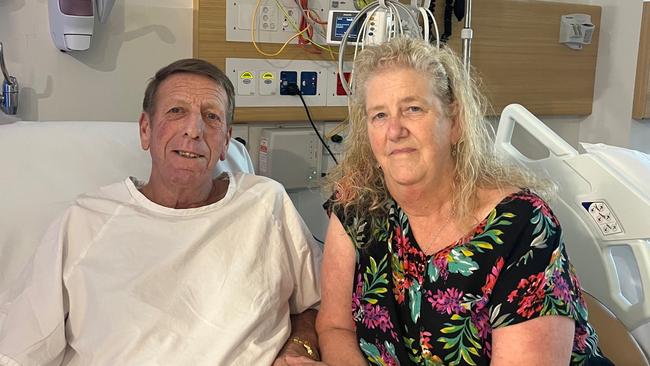
MICK CAN’T AFFORD CLINICAL TRIAL COSTS
Mick Breen was diagnosed with melanoma just five weeks ago but has already amassed out-of-pocket expenses of more than $3000.
The financial impact was so great the 69-year-old age pensioner from the NSW town of Orange has had to withdraw from a clinical trial in Sydney because he can’t afford the massive travel and accommodation costs.
His wife Deb had to quit her part time nursing job helping local hospitals deal with the Covid-19 overload to care for him and help him navigate the health system.
The couple’s out-of-pocket medical expenses are escalating fast, with rising petrol prices making travel to Sydney for care prohibitive.
“We found out that IPTAS (the NSW patient travel subsidy scheme) doesn’t give any reimbursement for people on clinical trials and we’d already spent just under $3000 on accommodation,” Mrs Breen said.
“Then there was parking and I haven’t I haven’t figured into that all the tolls we’ve paid, all the meals we’ve had to buy and the fuel, etc and that’s before any of the medical expenses happened,” she said.
“We’ve paid both the surgeon and the anaesthetist and once (Mick) starts having treatment we’ll have to pay for his treatment but because he’s on a pension that’s $6 per script.”
Mrs Breen welcomed the plan to allow cancer patients immediate access to the Medicare safety net.
“How long have they been saying that you need to be in a stress-free environment to be healthy and to get over disease? If you’ve got dicky finances, you’re going to be stressed from the outset,” she said.
FUNDRAISING CAME TO LIZ’S RESCUE
Four years go Liz Pickworth was diagnosed with an advanced rare cancer of the thymus gland and had to rely on fundraising through to cope with the cost of the condition.
The cancer was discovered late and initially the Canberra mother was told she had just two years to live but lifesaving surgery has improved her prospects.
“Care at the moment for me is palliative. So it’s about increasing quality of life and managing it as the best that I can. There’s absolutely no cure for it being stage four,” Ms Pickworth said.
“I’ll be really lucky if I get five to 10 years”.
The 34-year-old said cancer shouldn’t push someone below the poverty line.
The communications consultant has endured two 20-hour surgeries and been through nine months of aggressive chemotherapy and the large amount of time she had to take off work impacted her ability to pay for her care.
She is still working and relied on a patient treatment fund at Rare Cancers Australia to cover out-of-pocket medicine and scan costs. .
“Lost wages would probably equate to about $30,000 a year to $40,000 when you put a figure against it, but I was really lucky I had a fundraiser to help me,” she said.
Her surgery had to be done in Sydney and that entailed prohibitive accommodation costs for her family.
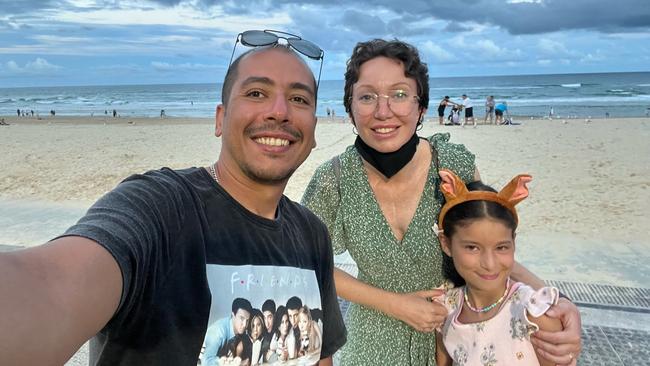
After the cancer spread to her spine, she needed more urgent surgery, without which she would have required a wheelchair or not be alive.
She also suffers a very rare auto-immune neuromuscular disease associated with the cancer and requires a daily medication to help with things such as breathing, chewing and swallowing.
“If I don’t take the medicine I can’t chew and swallow and I can essentially stop breathing,” she said.
Every three weeks she needs an expensive plasma therapy at the hospital but fortunately this is covered by Medicare.
She is very supportive of a plan to help cancer patients with medical costs by improving the Medicare safety net and said it was ridiculous people undergoing chemotherapy were not reimbursed for anti-nausea medications.
“I found it hilarious getting bills from the medicine provider for nausea medications when you really need them,” she said.
More Coverage
Originally published as Plan to stop medical bills bankrupting Australian cancer patients




